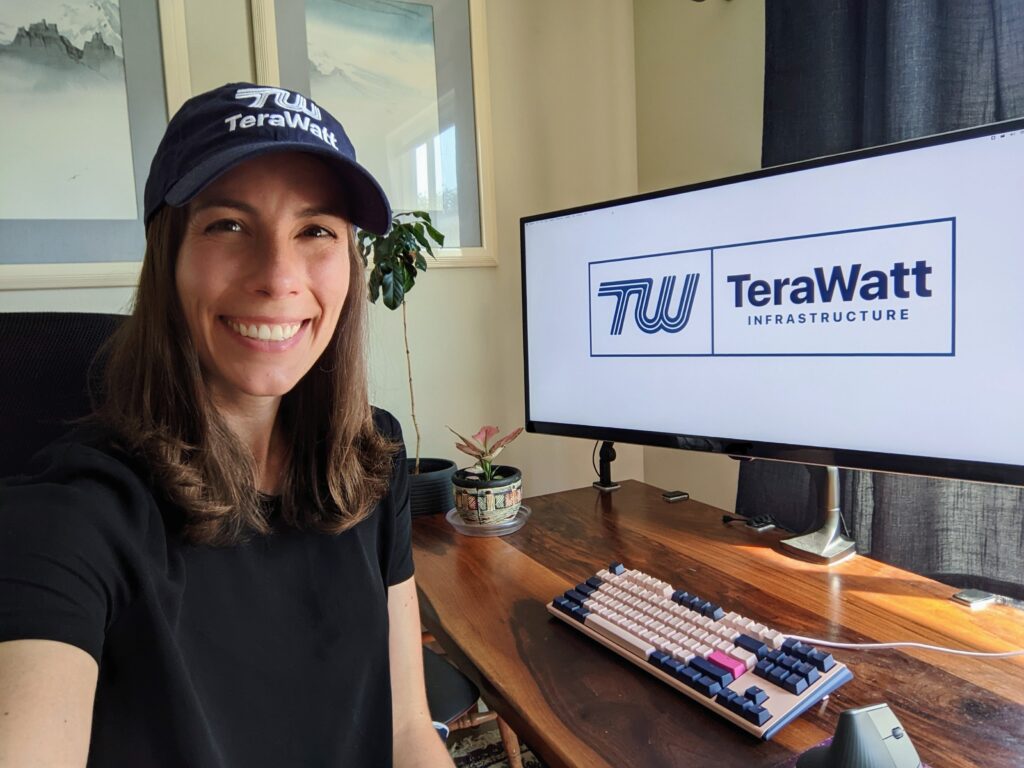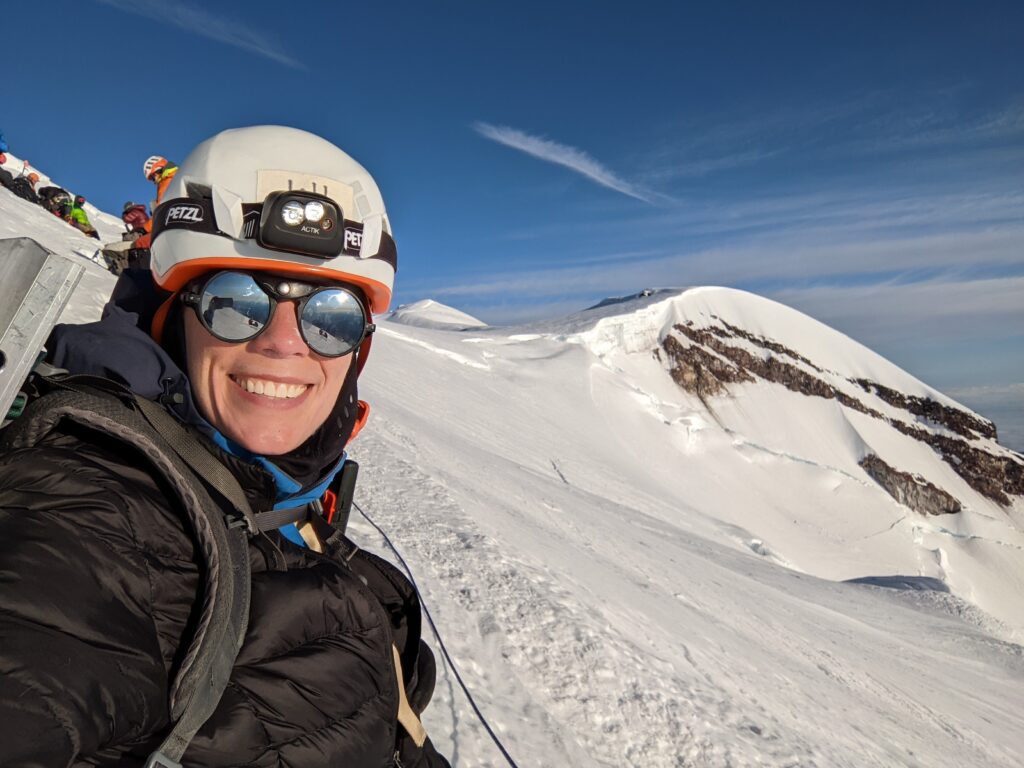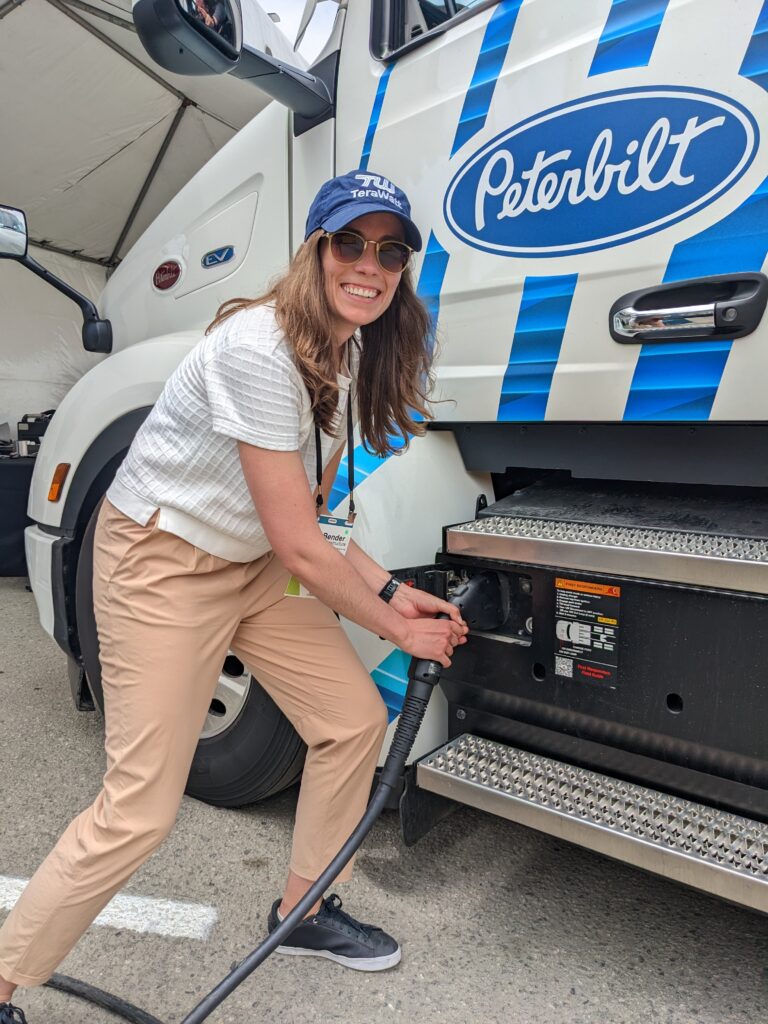CS alum Jill Bender: working at the intersection of tech and climate

Jill Bender (BSE CS 2014), a Software Engineer at TeraWatt Infrastructure, has a history of using computing to promote inclusiveness and societal good. Now, she’s focused on doing her part to mitigate climate change by helping to develop and deploy electric vehicle (EV) charging infrastructure.
As an undergraduate at Michigan, Jill was engaged in many ways to inspire others as a role model and to help expand access to the field of computing. From Fall 2011 – Winter 2012, she served as President of the Living Arts Programming Board, which was organized to encourage students of different backgrounds to generate and pursue interdisciplinary and creative projects. From 2011 – 2014, Jill served as a First Lego Research Coach, mentoring students aged 9-14 who designed and programmed Lego Robots to complete tasks in competitions. She also served as an Instructional Aide for EECS 183, the introductory CS class for students in the College of LSA, from 2012 – 2014. While at Michigan, Jill became active as a student member of the North American Network Operators Group (NANOG). For her many contributions, Jill was recognized with a College of Engineering Distinguished Leadership Award in 2014.

While a student, Jill loved computer science and felt she was just scratching the surface of how she might help to make contributions through CS. Upon graduation, she joined Microsoft in Redmond, Washington, which was a place that provided her with the opportunity to work on products that impact millions of users, and taught her the foundations of building quality software and gave her experience with large scale cloud systems.
After graduating from the University of Michigan and moving to the Seattle area, Jill had begun spending a lot of time outdoors in Washington State. She began hiking, camping, climbing, and kayaking, and before long she could see the impact of climate change on the environment around the region’s glaciers.
“I realized I could utilize my software engineering skills and experiences in IoT (Internet of Things) and distributed systems to help combat the impact of climate change,” said Jill.
Jill gravitated toward energy and infrastructure related roles, and ultimately found a great fit working at TeraWatt, which develops electric vehicle fleet charging infrastructure. At TeraWatt, Jill is working on the problems of EV charging interoperability and reliability to enable a smooth experience for the end user trying to charge their vehicle. She recently authored a blog post on this subject entitled, EV Charging Reliability: What Is It and How Is It Measured?

“We are entering a major shift away from fossil fuels and there are so many interesting and important engineering problems that need to be addressed to accomplish this,” said Jill. “I’m proud of the work I’ve been able to accomplish so far and have enjoyed meeting other individuals looking to make EV charging at scale possible.”
Work on mitigating climate change is both critical and multifaceted, with EV development and charging just one challenge among many. “For anyone looking to make a change into a career in climate, I would recommend visiting workonclimate.org and climatebase.org,” said Jill. “There are many opportunities out there where you can lend your skills and bring new ideas to the fight against climate change.”
Jill continues to be an advocate for expanding access to the tech industry. “It’s important to me to spend time in my career to mentor and support underrepresented groups in the tech industry, she said. “I’ve presented two talks through the North American Network Operators Group (NANOG) on inclusive hiring in tech. I hope to educate hiring managers as well as to inspire and empower a more diverse community in the field of computer science.”